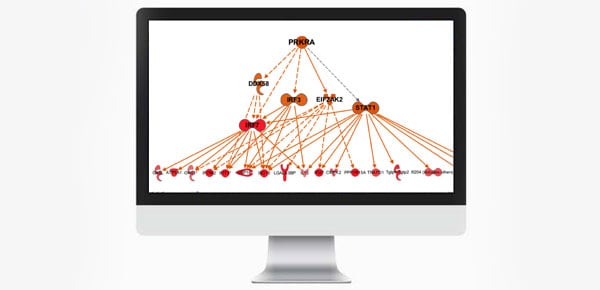


















This year the international conference on Intelligent Systems for Molecular Biology (ISMB 2016) will take place July 8-12 in Orlando, Florida. ISMB is hosted by the International Society for Computational Biology (ISCB), and the conference has grown to become the world's largest for bioinformatics and computational biology.
We're looking forward to presenting our solutions, so if you're joining, please stop by our booth #31. You're also welcome to attend our presentations at the Technology Track and the VarI-SIG meeting:
Biological interpretation of ‘omics data: The power of causal analysis
When: Monday, July 11 at 3:30 p.m. – 4:30 p.m.
Speaker: Andreas Kraemer, Ph.D., Principal Computational Biologist, QIAGEN Bioinformatics
Location: America's Seminar
Leveraging network analytics to infer patient syndrome and identify causal mutations in rare disease cases
When: Saturday, July 9 at 12:15 p.m. - 12:30 p.m.
Speaker: Andreas Kraemer, Ph.D., Principal Computational Biologist, QIAGEN Bioinformatics
Location: Swan Hotel, room Mockingbird 2
Identifying genetic variants underlying rare inherited diseases from next generation sequencing data can be both challenging and time consuming. A significant amount of time is invested in variant calling, annotation, and interpretation. Here we present a hereditary disease solution that delivers increased sensitivity for identifying causal variants, while shortening the list of candidates to follow-up. This high performance is achieved with a streamlined end-to-end workflow that includes Biomedical Genomics Workbench, Ingenuity Variant Analysis, and HGMD, while leveraging the large-scale causal network derived from the Ingenuity Knowledge Base, a structured collection of over 11 million findings curated from the biomedical literature and third-party databases. By providing a biological context users can rapidly uncover relevant mutations and gain valuable biological insight. As part of this solution, we have developed a scoring method to rank variants using disease inference from user-provided patient phenotypes to uncover novel or known variants in disease causing genes.
We hope to see you in Florida!
Get more details about ISMB 2016